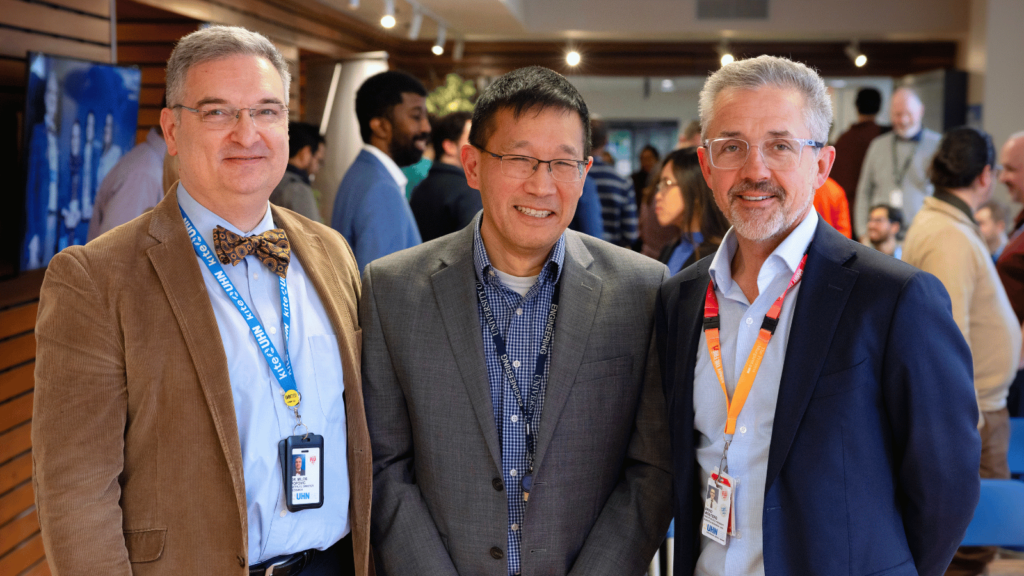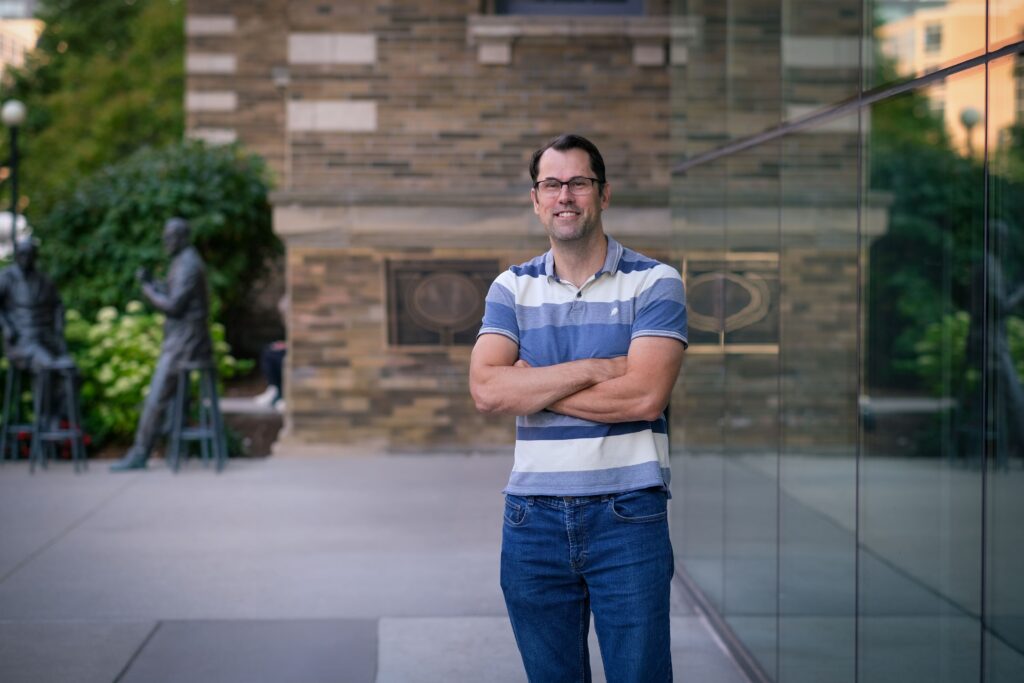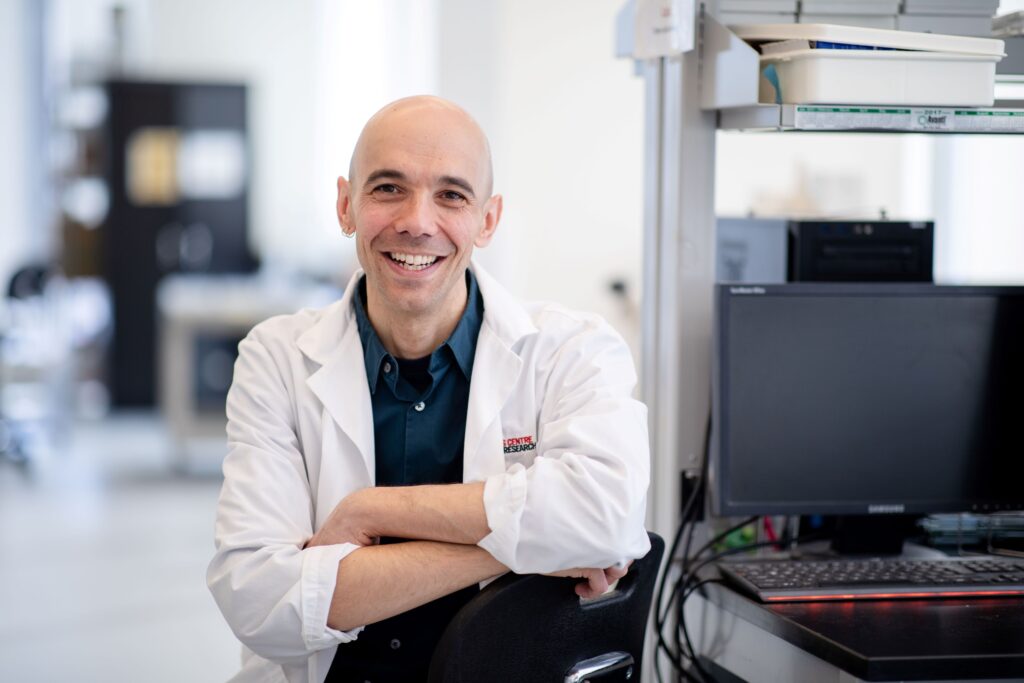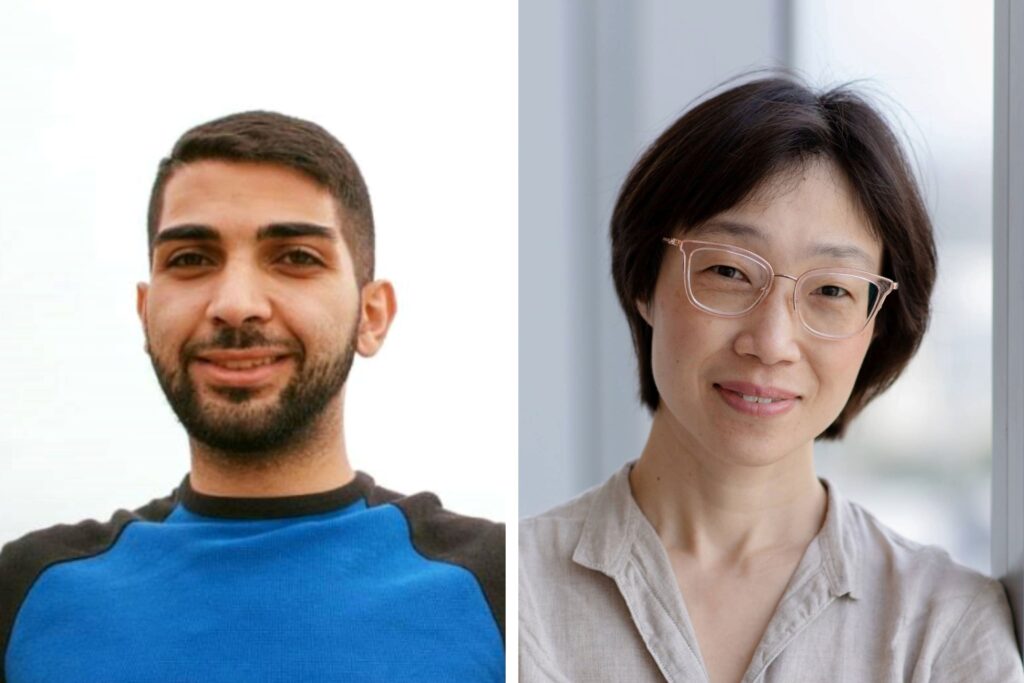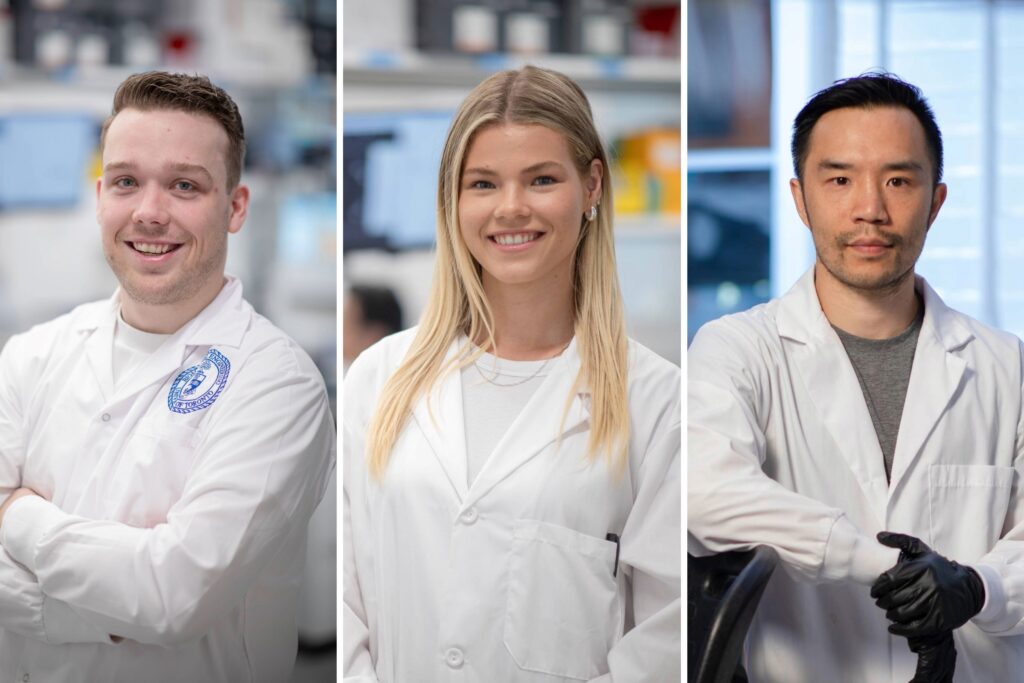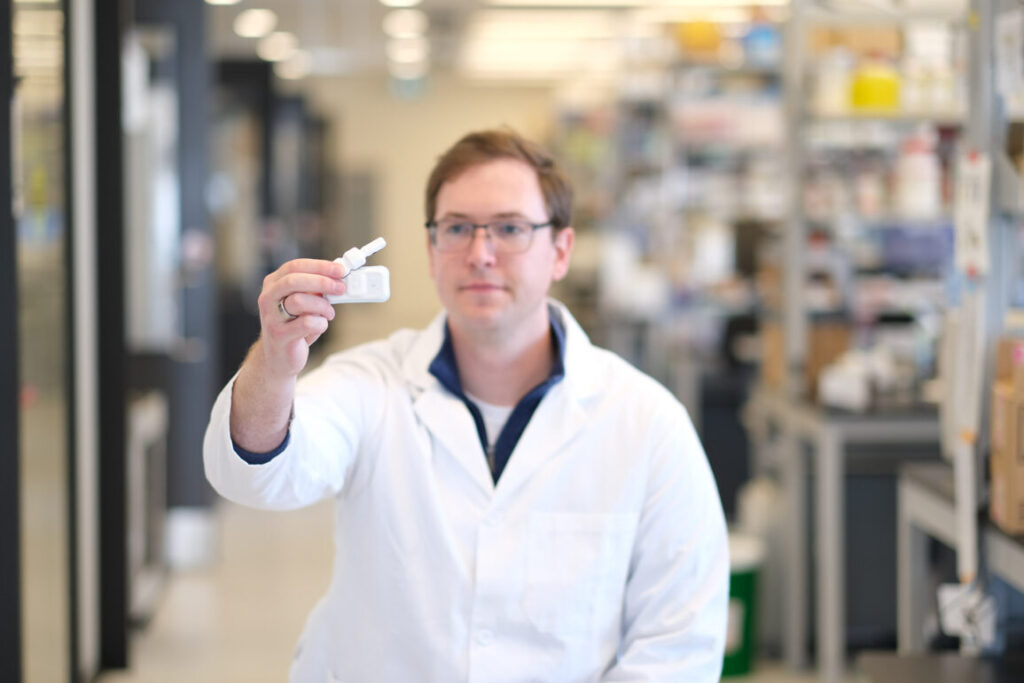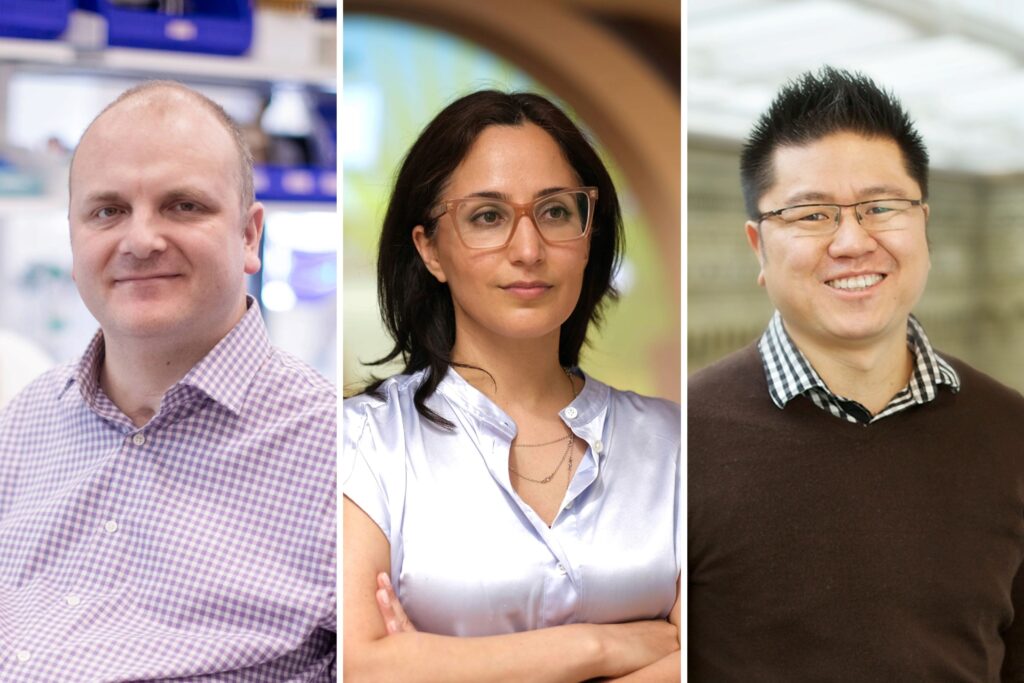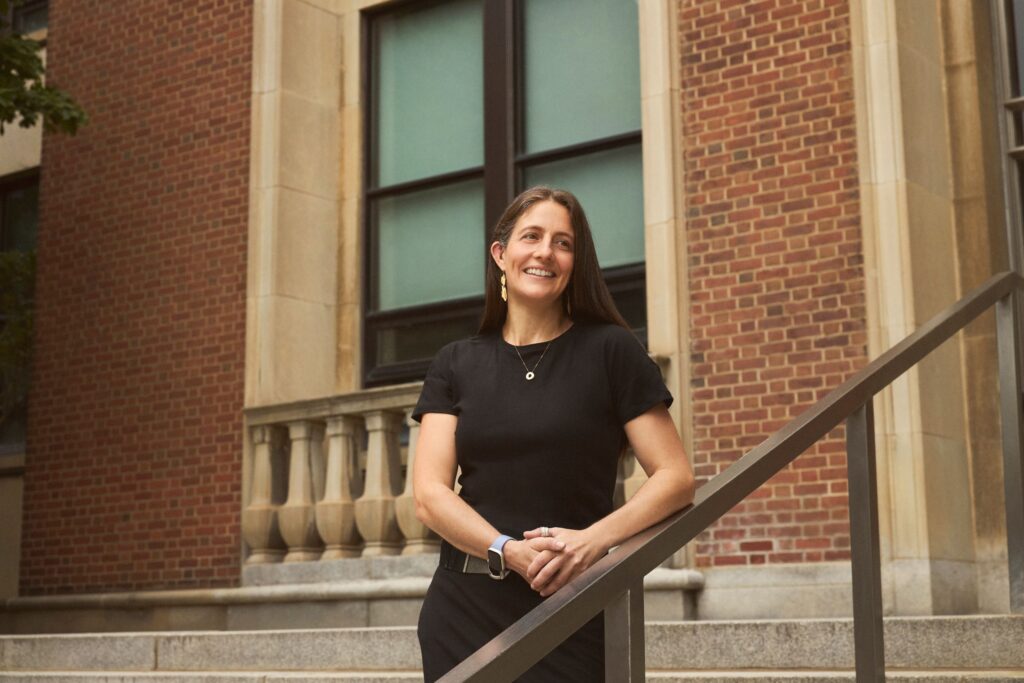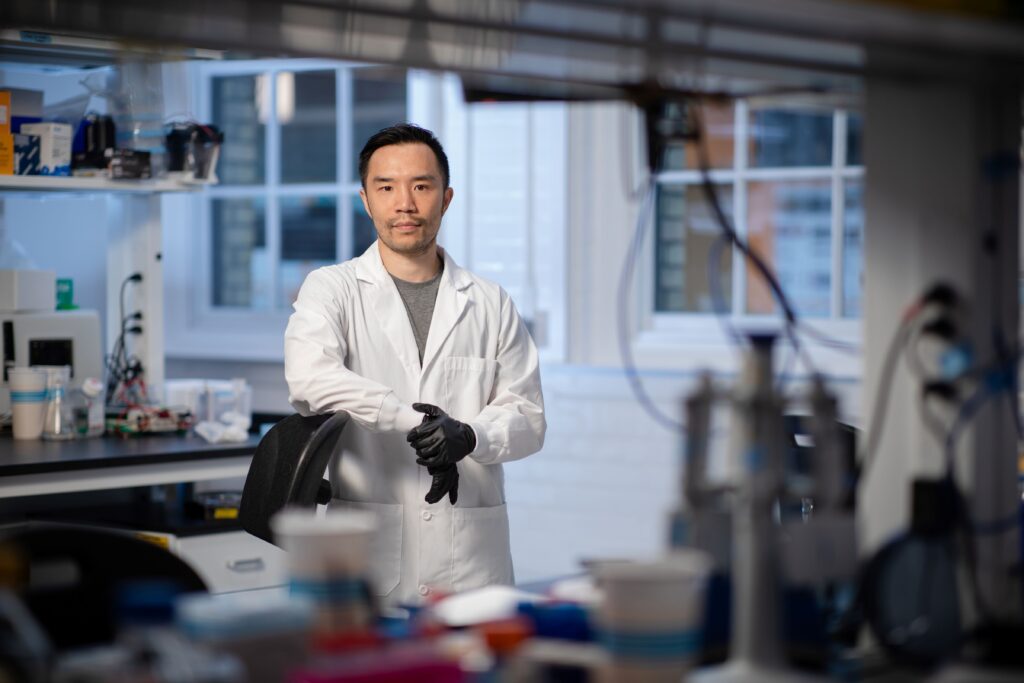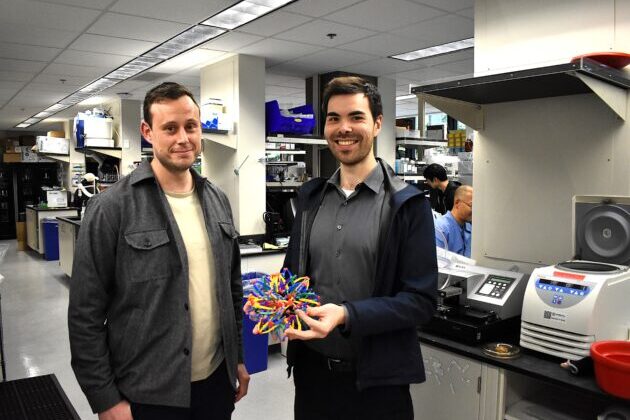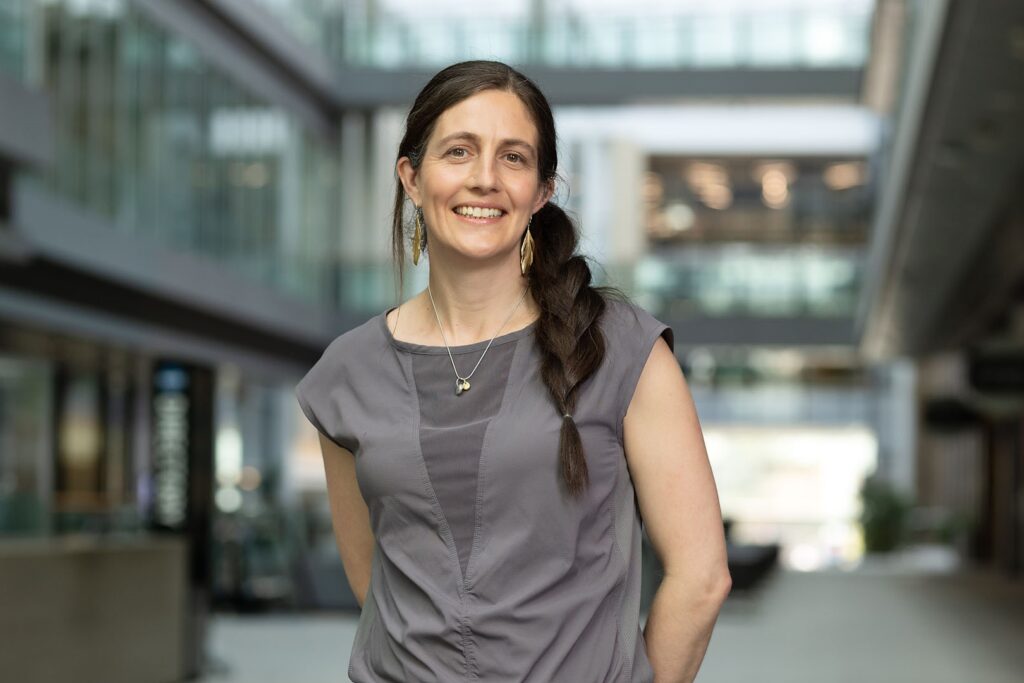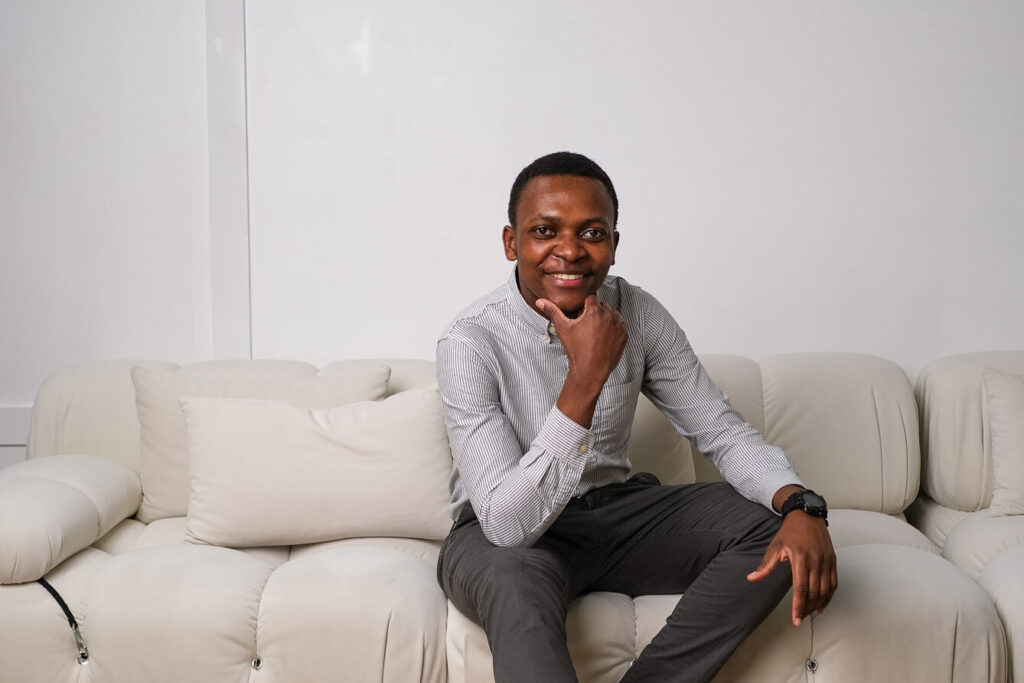News & Stories
Explore the latest news, stories, and groundbreaking research happening at the Institute of Biomedical Engineering. Stay updated on innovative projects, impactful discoveries, and the achievements of our talented students, faculty, and alumni shaping the future of biomedical science and engineering.
Quick Navigation
Professor Elaine Biddiss Receives CIHR Grant to Advance Digital Motor Rehabilitation for Children with Disabilities
Professor Elaine Biddiss receives CIHR grant to advance digital motor rehabilitation for children with disabilities Young people with motor disabilities could soon benefit from more accessible and personalized rehabilitation, thanks […]
Professor Jonathan Rocheleau Awarded CIHR Grant to Investigate Key Mechanism in Diabetes Treatment
Professor Jonathan Rocheleau, a researcher at the University Health Network (UHN) and the Institute of Biomedical Engineering (BME), has received a $100,000 grant from the Canadian Institutes of Health Research (CIHR) to explore a crucial aspect of insulin release—a process essential for maintaining healthy blood sugar levels.
Restoration of Rapid Wound Repair Despite Immunosuppressants
Researchers at U of T have determined that immunosuppressants used with transplant recipients slow wound repair by inhibiting the growth of cells adjacent to wounds. They have found ways to restore rapid wound repair in an in vivo animal model.
U of T Engineering ranked first in Canada in 2025 Times Higher Education’s global subject ranking
The University of Toronto’s Faculty of Applied Science & Engineering has climbed to the 23rd spot in the Times Higher Education’s World University Rankings by Subject 2025. The faculty has jumped three spots since 2024 and is the only Canadian engineering school in the top 25.
Elizabeth Chiu and Andrea Hung receives BME Unsung Hero Award
Starting in 2024, the BME Unsung Hero Award celebrates the dedicated individuals who work tirelessly behind the scenes to support the Institute of Biomedical Engineering (BME). This award recognizes the invaluable contributions of administrative staff, research technicians, assistants, and other key team members who ensure the success of our labs, programs, and community.
New drug delivery system could improve glaucoma treatment
Researchers from the Institute of Biomedical Engineering and Chemical Engineering at the University of Toronto have developed a novel method to dramatically extend the duration of glaucoma treatment.
U of T to host new national hub for accelerating life sciences breakthroughs
The University of Toronto and its partners are receiving $4.25 million over the next five years to establish a national hub aimed at accelerating the commercialization of life sciences discoveries.
New study points to leg muscle as a potential early warning system for heart failure
Researchers at the University of Toronto’s Institute of Biomedical Engineering (BME) have found that studying blood flow in leg muscles may help detect cardiovascular disease earlier compared to standardized tests, opening the door to earlier treatment and better outcomes.
Engineering synthetic immune complexes using DNA nanotechnology
Researchers from the Institute of Biomedical Engineering (BME) at the University of Toronto have developed a new method to precisely control the structure and function of immune complexes (ICs) using DNA origami.
Professor Daniel Franklin Receives 2024 Innovation Fund Award
With a mission to support novel approaches to managing and preventing heart failure, the Ted Rogers Centre for Heart Research uses its Innovation Fund to propel emerging research with great potential. The 2024-25 Innovation Fund Seed Grants are currently open and you can learn more here.
Professor Milos R. Popovic Named Fellow of the Engineering Institute of Canada
Professor Milos R. Popovic has been named a Fellow of the Engineering Institute of Canada (EIC). He is one of 23 distinguished engineers selected this year for their outstanding contributions to the engineering profession and their service to society.
Developing biodegradable brain stimulation electrodes for neural repair
Researchers at the Institute of Biomedical Engineering (BME) at the University of Toronto have developed a flexible, biodegradable electrode capable of stimulating neural precursor cells (NPCs) in the brain. This device delivers targeted electrical stimulation for up to seven days before dissolving naturally, eliminating the need for surgical removal.
U of T student team earns international prizes for leveraging AI to tackle antibiotic resistance
A U of T Engineering student team working on synthetic biology research and innovation has achieved its best results to date at the International Genetically Engineered Machine (iGEM) competition, with a platform to counter so-called superbugs that resist antibiotic treatment. With the support of Professors Michael Garton and Freeman Lan (both BME), the team started working with plasmids from E. coli bacteria to see if they could generate new sequences and validate their functionality, both computationally and in the wet lab.
Three U of T biomedical engineers awarded Canada Research Chairs for innovations in synthetic biology, neurodiversity health, and nanobioengineering
Three faculty members at the University of Toronto’s Institute of Biomedical Engineering (BME) have been awarded Canada Research Chairs (CRCs) by the Canadian Institutes of Health Research (CIHR) and the Natural Sciences and Engineering Research Council (NSERC).
Tissue engineering research earns Professor Alison McGuigan an Arthur B. McDonald Fellowship
Professor Alison McGuigan (ChemE, BME) has earned an Arthur B. McDonald Fellowship from the Natural Sciences and Engineering Research Council (NSERC).
Professor Milica Radisic earns NSERC’s John C. Polanyi Award
Professor Milica Radisic (BME, ChemE) has received this year’s John C. Polanyi Award from the Natural Sciences and Engineering Research Council (NSERC).
Three BME students share their graduate experience
Last week, students from the class of 2T4 walked across the stage at Convocation Hall and became the latest engineering alumni. Nevena Musikic, Amber Xue, and Alyssia Sanchez shared their graduate experiences in this video.
Professor Leo Chou awarded $130,000 to advance cancer vaccine research
Professor Leo Chou has been awarded $130,000 in funding from The Cancer Research Society (CRS) to propel forward an ambitious project aiming to boost the effectiveness of cancer vaccines. This award places him among 100 distinguished Canadian recipients this year, each selected to push boundaries in cancer research with innovative solutions.
BME alum secures $20M in startup funding
BME alum James Lazarovits’ (BME 2019) startup Archon Biosciences debuts with $20M to advance Nobel-inspired protein technology in cancer treatment.
Researchers identify potential target to reduce cancer cell invasion through fibroblast regulation
Researchers from the Institute of Biomedical Engineering at the University of Toronto have identified a novel approach to potentially slow cancer progression by targeting a key enzyme that influences cancer-associated fibroblasts (CAFs).
